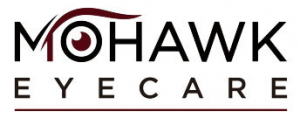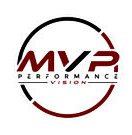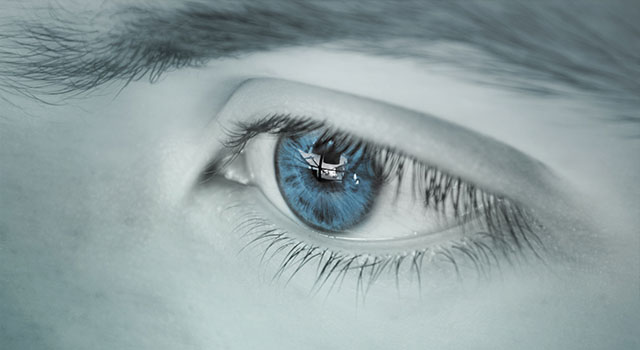
Traumatic Brain Injury Rehabilitation
The statistics on TBIs are quite startling. Over 2.8 million Americans suffer a form of traumatic injury each year, which is close to 1 in 100. Traumatic brain injury causes damage to the brain, resulting in headaches, confusion, poor concentration, and vision dysfunctions, among other problems. Fortunately, vision rehabilitation treatment, as part of an integrated team approach, can effectively help in the rehabilitation of patients with traumatic brain injuries.
What Is a Traumatic Brain Injury?
Traumatic brain injury (TBI) occurs when a sudden injury damages your brain. There are two types of TBI: a closed head injury that doesn’t break through the skull (yet may still cause brain damage), and a penetrating head injury, which causes the skull to break.
Approximately 47% of traumatic brain injuries are caused by falls, particularly among young children and those over 65 years of age. Other TBI injuries can result from blunt force trauma (15%), car accidents (14%), and violent physical assaults (9%).
The symptoms experienced following a TBI include headaches, confusion, dizziness, convulsions, poor concentration, memory issues, and personality changes. Because more areas of the brain are used to process vision than any other system, traumatic brain injuries can often result in vision problems.
In order to recover from a TBI, one needs to undergo rehabilitation, which can come in many forms — depending on your specific case and requirements. It may include physical, occupational, and speech therapy, as well as neurological, and psychiatric care. Neuro-optometric rehabilitation, however, is one of the most effective ways to resolve a range of traumatic brain injury vision problems.
Rehabilitation for Traumatic Brain Injuries
 During its acute stage, moderately to severely injured TBI patients will typically be treated and cared for in the intensive care unit of a hospital. As your needs and abilities change, so will the rehab program. Rehabilitation can take place in various settings, such as inpatient or outpatient rehab hospitals, home-based rehab, day programs, and independent living centers.
During its acute stage, moderately to severely injured TBI patients will typically be treated and cared for in the intensive care unit of a hospital. As your needs and abilities change, so will the rehab program. Rehabilitation can take place in various settings, such as inpatient or outpatient rehab hospitals, home-based rehab, day programs, and independent living centers.
What Does Rehabilitation Resemble Following Brain Injury?
Everybody’s needs and functions vary following a brain injury, and each rehab program is designed to match the patient’s unique needs and goals. The program generally includes a case coordinator and several healthcare providers.
The treatments below are offered based on your functions and abilities, such as visual skills, speech ability, mental and behavioral state, language comprehension, among others.
- Physical therapy
- Physical medicine
- Occupational therapy
- Neuro-optometric rehabilitation
- Psychiatric and psychological care
- Speech and language therapy
How Does TBI Affect Vision?
Studies indicate that 90 % of TBI patients experience some form of vision disruption, which is caused by interrupting communication between the eyes and the brain.
Symptoms include:
- Blurred vision
- Eyestrain
- Increased sensitivity to light (photophobia)
- Reading difficulties
- Visual periphery defects
- Color contrast issues
- Vestibular dysfunction
- Decreased visual acuity
These visual aberrations may affect professional, educational and other aspects of daily living.
Unfortunately, TBI-related vision problems may often be overlooked during the initial brain injury treatment as visual disruptions may not be present until some time has passed following the accident.
 How Can an Optometrist Help in the Recovery of a TBI?
How Can an Optometrist Help in the Recovery of a TBI?
Optometrists, who typically work as part of an interdisciplinary team, play a crucial role in treating patients with TBI. Neuro- optometric rehabilitation optometrists (neuro-optometrists) assess and treat TBI-related visual disorders that impact the patient’s rehabilitative progress and quality of life.
At Neuro-Optometry Mohawk Eyecare, we see a variety of patients who have had TBI, whether due to a sports injury, motor vehicle accident, or fall, with visual problems range in complexity and severity. By staying on top of the most recent research, Dr. Danielle Bianco can properly tailor a treatment plan to the patient’s unique needs for maximum results.
Two Types of Eye Doctors Specialize in the Detection and Treatment of TBI
Neuro-optometrists
A neuro-optometrist is a Doctor of Optometry (OD) who is highly trained in diagnosing and treating neurological conditions that impact the visual system. The treatment of TBI by a neuro-optometrist is called neuro-optometric rehabilitation (also known as vision rehabilitation).
Neuro-optometric rehabilitation should not be confused with vision therapy, as not all doctors who offer vision therapy are trained in neuro-optometric rehabilitation.
Neuro-ophthalmologist
A neuro-ophthalmologist is a medically trained eye doctor ( MD) who specializes in vision problems relating to the nervous system — such as TBI-related visual acuity loss.
Both neuro-optometrists, such as Dr. Danielle Bianco, and neuro-ophthalmologists can identify TBI-related vision problems. Depending on the type and severity of problems detected, they will develop a treatment plan uniquely designed to eliminate post-TBI vision symptoms and difficulties. Treatments typically include specialized glasses to help with visual processing or in-office and at-home neuro-rehabilitation procedures to reduce symptoms and promote visual recovery.
It is important to note that a single type of vision rehabilitation treatment is often not enough to address all the patient’s needs. That is why an interdisciplinary, integrated team approach can play a vital role in the rehabilitation of patients with traumatic brain injuries.
Neuro-Optometric Rehabilitation for Brain Injuries
Neuro-Optometric Rehabilitation is a personalized treatment regimen for those with visual deficits resulting from traumatic brain injuries, physical disabilities or other neurological issues. The vision complications that develop following a TBI are not related to visual acuity (20/20) but rather to eye teaming, focusing, and tracking. This can result in difficulties in reading and playing sports.
The goal of neuro-optometric rehabilitation is to retrain the visual system and eliminate the visual symptoms that arise from a traumatic brain injury. Fortunately, by using specific eye-training exercises, one can rewire the brain to improve eye function. Just as with other rehabilitation methods, the earlier one starts the eye exercises following a TBI, the better the chance of recovery and sight improvement.
We will use a variety of tools and exercises to train aspects of the visual system in order to improve vision accuracy. The functional skills the doctor will work on will include eye tracking, focusing, and eye teaming, as well as visual discrimination (the ability to discern b’s and d’s), handwriting, and spatial awareness. During the course of the treatment, the patient will be assigned a series of home exercises with specialized equipment. Follow-ups will be regularly scheduled by the optometrist to assess progress.
Should Everyone With a Brain Injury See An Eye Doctor?
If you experience a traumatic brain injury, make sure to see a neuro-optometrist who has special training in TBI-related visual aberrations. This is all the more necessary if you experience any changes in your vision following head trauma.
Children With Traumatic Brain Injury
Though the symptoms of TBI in children resemble those experienced by adults, the functional impact can be very different. Because the brain of a child is in development, a brain injury can result in cognitive impairments. Though not always apparent following the injury, it may manifest itself as the child gets older. Your child may face physical, cognitive, and emotional challenges which can result in struggles for children, their families, schools, and communities.
Therefore, once the child is stabilized following a brain injury, the patient should receive physical therapy, occupational therapy, speech therapy, optometric and neuropsychological testing. Rehabilitation will teach the child how to compensate for impaired or lost functions and will provide strategies on ways to optimize the use of these abilities as they return.
The caring and knowledgeable staff at Neuro-Optometry Mohawk Eyecare are always here to help patients experience the best vision care and treatment possible.
Our practice serves patients from New Castle, Beaver, Cranberry, and Grove City, Pennsylvania and surrounding communities.


